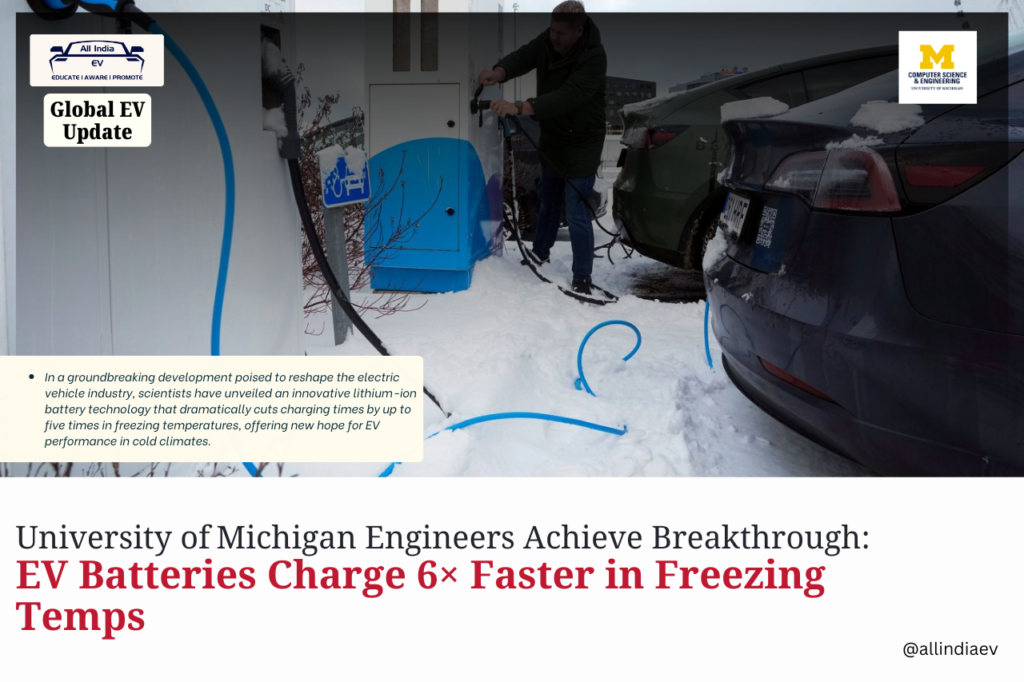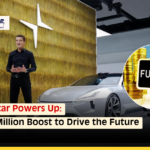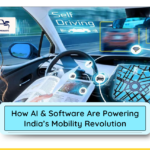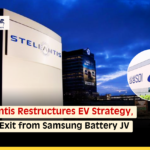
In a landmark breakthrough for the electric vehicle industry, engineers at the University of Michigan have developed a new lithium-ion battery technology that enables EVs to charge up to six times faster in freezing conditions, marking a significant leap forward in cold-weather EV performance.
This innovation comes as electric mobility rapidly expands across the globe, but cold climates continue to pose challenges for battery efficiency and charging speed. The University of Michigan’s research team has introduced structural and chemical modifications that dramatically reduce charging times in sub-zero conditions — a game-changing development for EV owners in colder regions.
Laser-Modified Battery Structure Enables Faster Ion Flow
The key to this cutting-edge battery lies in a dual-approach innovation. First, researchers used lasers to drill microscopic holes in the graphite anode, creating efficient pathways for lithium ions. This structural redesign, first explored in 2020, now proves especially effective when paired with chemical refinements to improve cold performance.
Second, the team applied a thin coating of lithium borate-carbonate, a material known to enhance solid-state battery efficiency. This coating prevents harmful lithium build-up and enables a 500% improvement in charging performance at temperatures as low as -10°C (14°F).
Reliable Performance with Minimal Manufacturing Disruption
Unlike previous solutions that required thicker electrodes (often at the cost of fast charging), this technique maintains balance—delivering rapid charging without compromising long-term battery health. Tests revealed the batteries retained 97% of their capacity after 100 rapid-charge cycles in freezing conditions.
Crucially, this innovation does not require major changes to existing battery production lines, according to lead researcher Neil Dasgupta. This means manufacturers could adopt this breakthrough quickly and cost-effectively — a key factor in scaling its real-world impact.
Implications for India’s Growing EV Ecosystem
While India doesn’t experience extreme winters across most regions, cold-weather EV reliability remains critical for high-altitude states like Himachal Pradesh, Uttarakhand, and parts of Jammu & Kashmir. Enhanced cold performance can also boost consumer confidence and further accelerate EV adoption nationwide.
As India pushes for stronger EV adoption and battery localization through initiatives like FAME India and PLI schemes, such global R&D milestones offer valuable insights for domestic manufacturers, startups, and policymakers. Integrating such innovations into India’s battery ecosystem could give a much-needed edge in export competitiveness and climate resilience.
The University of Michigan’s cold-weather battery breakthrough marks a new chapter for electric mobility. As EVs become a year-round necessity worldwide, especially in diverse climate zones, technologies that tackle winter performance bottlenecks will be pivotal to global EV transition.










